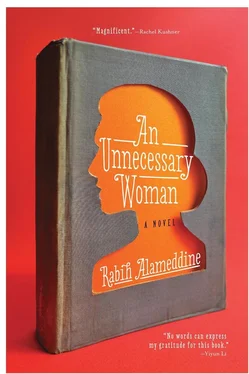Fifteen years ago, at sixty-one, my husband died, a solitary passenger on a public bus, his head leaning at an awkward angle against the murky window. The bus drove two full routes, passengers ascending and alighting, before the driver realized he was keeping company with a lifeless man. Sometimes death arrives quietly.
Wanting to put him to rest once more, I attended his burial, his final interment. No keening or wailing at his funeral. In the open casket, he lay dead. Someone had combed his hair flat and awkward, as if he’d just taken off his imbecilic hat. Seated all around me, the mourning women could not help but giggle and gossip. He had died with an erection that would not relent, priapism in the final throes, an irony worthy of Svevo.
In death Eros triumphed, while in life Thanatos had. My husband was a Freudian dyslexic.
Death is the only vantage point from which a life can be truly measured. From my vantage point, as I watched men I didn’t recognize carry my ex-husband’s coffin away, I measured his life and found it wanting.
I realize that I haven’t mentioned my husband’s name. It isn’t intentional. It’s just that I can call him my husband and that defines him.
There are many reasons for not naming a character or someone you’re writing about. You might want to have the book be entirely about the main narrator, or maybe you want the character to remain ephemeral, less fully fleshed.
I have no such reasons, I’m afraid. He was Sobhi Saleh, a leaden sound, unwieldy. Unfortunately, I still carry his last name like a cross, nailed to it, you might say. His first you can forget. We can jettison it under sea swells, bury it under the silt of the Mediterranean.
Sobhi. Tfeh!
When I first married, though, life had possibilities. Beirut, and this building, looked different in the early fifties. A frangipani, long since disappeared, babbled mischievously before the building, spilling fragrance and flowers as I entered. Across the street was a locust tree that has also vanished, uprooted. In the early evening, the neighborhood’s chatter of starlings hadn’t yet been silenced. Among the many definitions of progress, “enemy of trees” and “killer of birds” seem to me the most apt.
When we moved in, the owner of the building, Hajj Wardeh, his pale face sporting sunglasses, a bristle mustache, and at least three worthy warts, turned out with his family to welcome my husband and me with rice pudding and rose water — an inappropriate double dose, I thought, since the pudding had more rose water than was necessary, and many a rose was beheaded for that dessert. I remember his perfectly tapering fingernails. I remember the first words out of his little daughter’s mouth: “But she’s much taller than he and skinnier.” Fadia, forever long-tongued, was six then. I remember her father’s embarrassment, her mother covering Fadia’s mouth.
Hajj Wardeh said, “Welcome, family.”
His title was recently and proudly acquired: he’d just returned from Mecca.
My black shoes were dyed earth red; I’d lugged two suitcases and several bundles, everything I owned, across town through a parasol pine thicket. Everything I owned including my trousseau: three dresses, one pair of shoes, three pairs of socks (not hose), underwear, two scarves, one gold chain, one bracelet, a brooch of crocheted cherries, two cooking pots, a serving dish that was slightly cracked, five plates, a copper and tin tureen and its ladle, a complete set of silverware for three people, my father’s few things, and two textbooks from that year, which I knew I’d not use again.
I felt so rich then. The apartment seemed so wide and spacious. I look back now with longing.
From Pessoa: “Ah, it’s my longing for whom I might have been that distracts and torments me.”
Aaliya, above it all, separated, disentangled.
Many Muslim and Christian hajjis are masters of pious dissimulation who covet the title but not the path. Not Hajj Wardeh; he earned his title. He lived by Javertian principles. He was generous and neighborly at first, but once my husband walked out, he wanted nothing to do with me. I might as well have worn a scarlet letter. He forbade his children to interact with me. Fadia, who used to spend all her time in my apartment, began avoiding me, turning her back when I walked by. If she had to talk to me, she employed a haughty and authoritative tone, as if I were her scullery maid. She was only ten or eleven, already an autocrat. Just a bit of that belligerent childhood despotism passed into her adulthood — well, maybe a little more than a bit.
Even though Hajj Wardeh refused to acknowledge my existence in person, he took my side when it came to the apartment. My husband’s family wanted it, claiming I had no right to it. My own family demanded it, suggesting that any of my brothers was more deserving of it. Hajj Wardeh would brook none of this. The apartment belonged to my husband, and unless my husband himself claimed it, or possibly his future sons, he would not release it to anyone. My husband, of course, could risk no such thing. As long as I paid my rent, Hajj Wardeh considered me his tenant.
My home, my apartment; in it I live, and move, and have my being.
My husband’s family forgot about the apartment, but mine didn’t. My mother couldn’t look at me without trying to convince me to leave. My half brothers had large families living in small apartments. They needed it more than I did. They had more difficult lives, they deserved it. It was my familial duty. I was selfish, insensitive, and arrogant. Did I not know what people were saying about my living on my own? My mother was the young United Nations: leave your home, your brothers have suffered, you have other places you can go to, they don’t, get out.
More than once, my half brothers cursed me. More than once, each one banged on my door in an attempt to terrorize me. Terrorized I was, particularly in the beginning when I felt most vulnerable and the fear of losing my home nibbled at me. I would be in the apartment eating or reading when banging and curses would suddenly erupt from behind the door. My heart would skip, my body would tremble. At times, during the early years of being alone, I felt as if my soul was withering, like a chestnut drying within its shell.
All that — the banging, the harassing, my brothers’ demands — stopped years and years later, in 1982, during the Israeli siege of Beirut. Many inhabitants of the city had fled and squatters quickly took up residence in the empty homes. Those of us who remained, those who had nowhere else to go, were emotionally weary, fed but not nourished by fear and adrenaline. Thinking that no one was home, three men broke into my apartment in the early dawn. I hopped out of bed, still in my nightgown. There’d been no water for weeks; neither my hair nor my nightgown had been washed in ages. I picked up the AK-47 that lay next to me on the right side, where my husband used to sleep all those years earlier. It kept me company in bed for the whole civil war. Barefoot, I rushed out, brandishing the assault rifle. The men in fatigues took one look at the attacking madwoman and ran out the door — not silently, I might add. I chased after them, but only to the landing, since they’d already reached the ground floor, running in an unathletic manner — twelve independent limbs jerking and flailing haphazardly — a stampede of cartoon cows.
A shot fired from the fourth floor frightened me out of my hysteria. Fadia had aimed at one of the sandbags at the end of the street. Like me, she only intended to scare them, but she actually fired her rifle.
“Don’t you dare come back,” she shouted. “This is the smallest gun I have.” Then, to her kids, “Get back inside. There’s nothing to see here.”
Читать дальше












